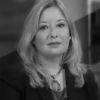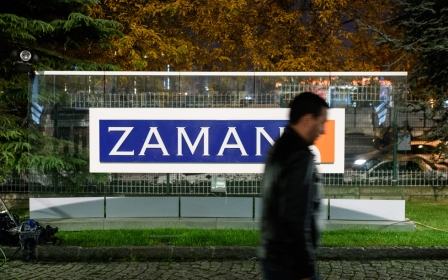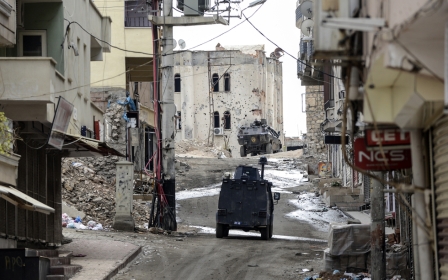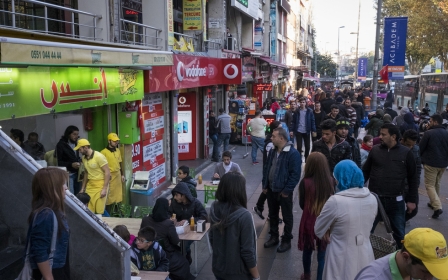Post-election Turkey: Surprising results and gratuitous reactions
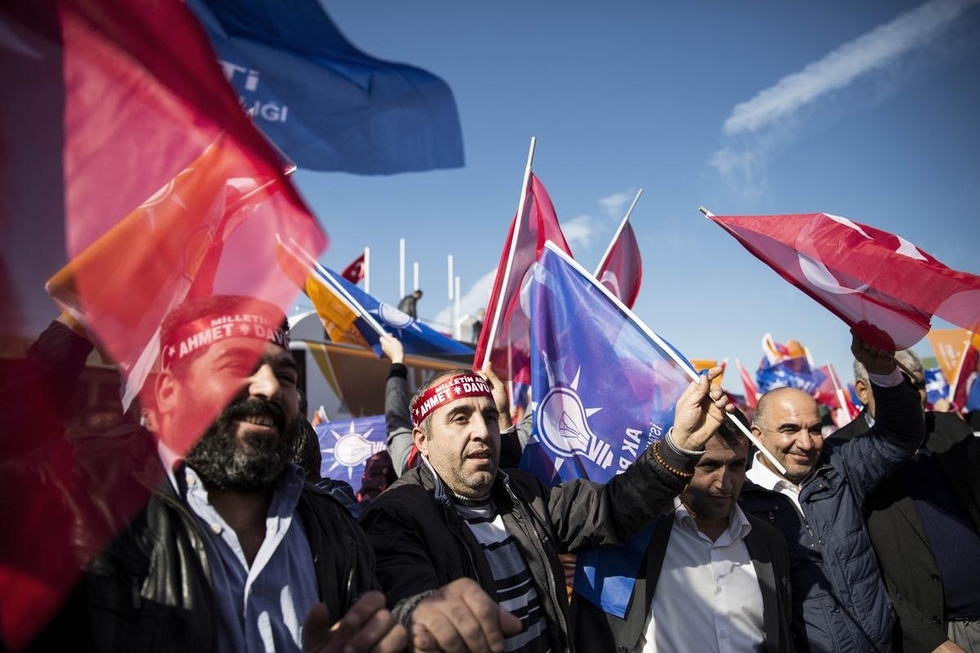
The offical results of the Turkish elections held on 1 November were announced by the Supreme Electoral Council on the 12 November. There have been no changes from the unoffical results announced shortly after the election. The AK Party’s huge comeback with a landslide victory of 49.5 percent has been surprising not only for the pollsters and the opposition, who were deeply disappointed, but also for the AK Party itself.
The 7 June elections ended the AK Party’s uninterrupted majority of 13 years when they fell short of winning 276 to form a single party government. A summer of uncertainty and uneasiness followed. Concerns over a stagnating economy, the rising death toll among the armed services in a reignited conflict with the PKK, a new grim urban warfare in the East, perpetrated by an emergent youth wing of the PKK saw a return to curfews, while civilians were killed in two separate attacks by ISIS suicide bombers.
The failure to form a coalition led to the interregnum of an “election government” - as decreed by the constitution, and a first in Turkish political history. As an early election was called for 1 November, political parties, already exhausted with the intense campaign trails leading up to the 7 June, found themselves in the midst of yet another election campaign.
Three things determined the outcome of the November election:
What the election was all about
The election of the 7 June was put to the voters as a referendum between wanting a presidential system or being against it. The November election was about whether voters wanted a hung parliament like the June results, which might at best produce a coalition most likely not to last, or herald yet another period of uncertainty that, given the deteriorating security environment and possible worsening of the economy, the country could not sustain. Voters, in the final act, opted for stability.
How the parties campaigned
The most significant change in campaigning came from the AK Party, which showed its flexibility and adaptability to reading voting preferences. The run-up to June had focused on the AK Party’s track record with the emphasis on a presidential system.
The November election campaign had more deliverables spelled out such as the increase in the minimum wage. While the presidential system was one of the themes, it was not the dominant one and was tied to a more general urgency for the making of a new civilian constitution. The other parties did not make a significant change in their campaign. There was not much change in the list of candidates running for office. There was a great emphasis in the CHP manifesto on youth and education but the tangibles were not expressed clearly in what was a very lengthy manifesto document.
The HDP hardly changed anything from their previous manifesto but emphasised greater powers to regional governments. The MHP manifesto did not dwell on how policies would be implemented.
The AK Party concentrated a great deal on the 39 critical election regions where candidates at the bottom of the lists lost to other parties by very narrow margins. They also focused on the votes lost in the Kurdish populated regions by replacing candidates with those more familiar with the region and Kurdish issues.
Around 1.2 million voters from the Kurdish region who had voted for the HDP in June switched back to the AK Party in November. The PKK’s breaking of the ceasefire and the resumption of conflict, followed by the subsequent declaration - by local mayors in league with the PKK - of so-called autonomous zones, lost votes for the HDP, who were neither in control of the situation nor were able to strongly denounce the actions of the PKK.
Track records of delivering election promises
Apart from what was promised, it is evident that voters also based their choice on the track record of fulfilment of election promises. A recent study conducted by a Turkish University, revealed that between 1983 and 2012, 60 percent of election promises were not kept in Turkey. More election promises were fulfilled during single party governments than coalitions and the party which fulfilled most election promises in the entire period between 1983-2012 was the AK Party. For example, despite good policy proposals in the CHP manifesto, people also voted on the potential of delivery which saw 2 percent of CHP votes go to the AK Party. It is much harder to see votes drifting between those two parties than say, the AK Party and MHP, which both come from a conservative base.
The average taken from the exit polls suggested an outcome likely to be a repetition of the June elections with a possible narrow majority for the AK Party, just scraping through. Only one poll predicted a 47.5 percent hike for AK Party, which was deemed too astonishing to take seriously by pundits. Opposition analysts predicted there would be no loss of Kurdish votes from HDP to AK Party.
They were all wrong. Around 5 million more voters opted for AK Party in November. How come this was unforeseen? “Societal pressure” is still felt by a lot of AK voters, cautious of “coming out,” who may not have disclosed their preference in the polls. One of the respected polling companies claimed that they saw the 49 percent in one survey but thought they were far off, so scrapped it and undertook a smaller survey. Even when they found a result of 43 percent for AK Party, they were apparently harassed by opposition supporters. The owner of the polling company has claimed he too, was under “societal pressure”.
The profound shock effect of the AK Party’s landslide victory also found resonance in the international media and observers, who could barely disguise their disappointment with doomsday predictions and repetitious highlighting of probable “unfairness” which was not even mentioned in the OSCE report.
The economist Meyersson ran some digit tests to suggest “tampering”. He reached the conclusion that his findings might suggest manipulation but there was no proof of it. The OSCE was concerned about clampdowns on some critical media outlets. Since this was part of a wider legal process against some companies associated with the Gulen movement and came only days before the election, it is debatable what impact this had on the results. Several other critical and Gulen media channels continued broadcasting throughout the campaign and after.
The OSCE also claimed some parties could not campaign freely due to the security environment. The HDP decided not to campaign after the Ankara attack, Turkey’s worst terrorist attack, in which 102 people died. The AK Party were also subject to attacks but continued with the other two parties to campaign after the three-day mourning period.
The independent election monitoring group Oy ve Otesi (Oveo), predominantly made up of opposition volunteers (to my knowledge there are no AK Party supporters in this group), claimed minor discrepancies in their findings had no bearing on the final election results.
The win for the AK Party was achieved with such a wide margin over the other opposition parties that even the most vehement AK objectionist would have to concede that any claim of “unfairness” - unfounded or not - would not have had much of an effect, if any, on the results.
- Gülnur Aybet is Professor of International Relations at Bahcesehir University and Director of BAUCESS, Centre for Security Studies in Istanbul, Turkey.
The views expressed in this article belong to the author and do not necessarily reflect the editorial policy of Middle East Eye.
Image: Justice and Development (AK) Party supporters welcome Turkish Prime Minister and Justice and Development (AK) Party leader, Ahmet Davutoglu as they waive flags at Ataturk Airport after the 1 November general elections in Istanbul (AFP)
New MEE newsletter: Jerusalem Dispatch
Sign up to get the latest insights and analysis on Israel-Palestine, alongside Turkey Unpacked and other MEE newsletters
Middle East Eye delivers independent and unrivalled coverage and analysis of the Middle East, North Africa and beyond. To learn more about republishing this content and the associated fees, please fill out this form. More about MEE can be found here.


